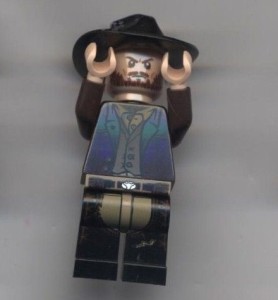
Store credit holds a buyer’s money hostage, requiring them to make an additional purchase whether they want to or not.
Some Bricklink sellers only offer store credit as compensation for LEGO pieces missing from an order. But store credit for missing LEGO pieces creates several problems and inconveniences for buyers.
Store credit holds the buyer’s money hostage, requiring them to make another order
Requiring the buyer to make another purchase is great for a seller, but not so great for a buyer. What if the seller isn’t offering any other items that the buyer wants? What if the store closes? What if the store credit coupon expires? (Bricklink coupons can only be issued for up to one year.) What if, due to order inaccuracy and poor customer service, the buyer never wants to make a purchase in the store again? In any of these scenarios, the buyer loses money through store credit and the seller potentially loses the trust of the buyer.
LEGO Sellers: Give the buyer options
Giving the buyer options makes the buyer feel empowered. Offer both to send a partial refund or to mail the buyer the missing piece(s), if the pieces are available in your inventory. If you really want to go the extra mile for the customer, offer to buy the parts from another source and then ship the replacement parts. Some buyers need a specific quantity of parts to complete a set or finish a My Own Creation (MOC). An incomplete order leaves their project likewise incomplete. Yes, shipping the replacement parts costs the seller money in the short term, but can pay major dividends in the future with repeat business.
The One Store Credit Exception
The only time offering store credit could be mutually beneficial to a buyer and seller is if the seller offers a store credit amount HIGHER than the cost of the missing parts. Consider adding a dollar or two in value beyond the cost of the missing parts. A higher amount of store credit can tempt the buyer away from requesting a refund or replacement. Still, keep the options of a refund or replacement on the table for the buyer to decide.
